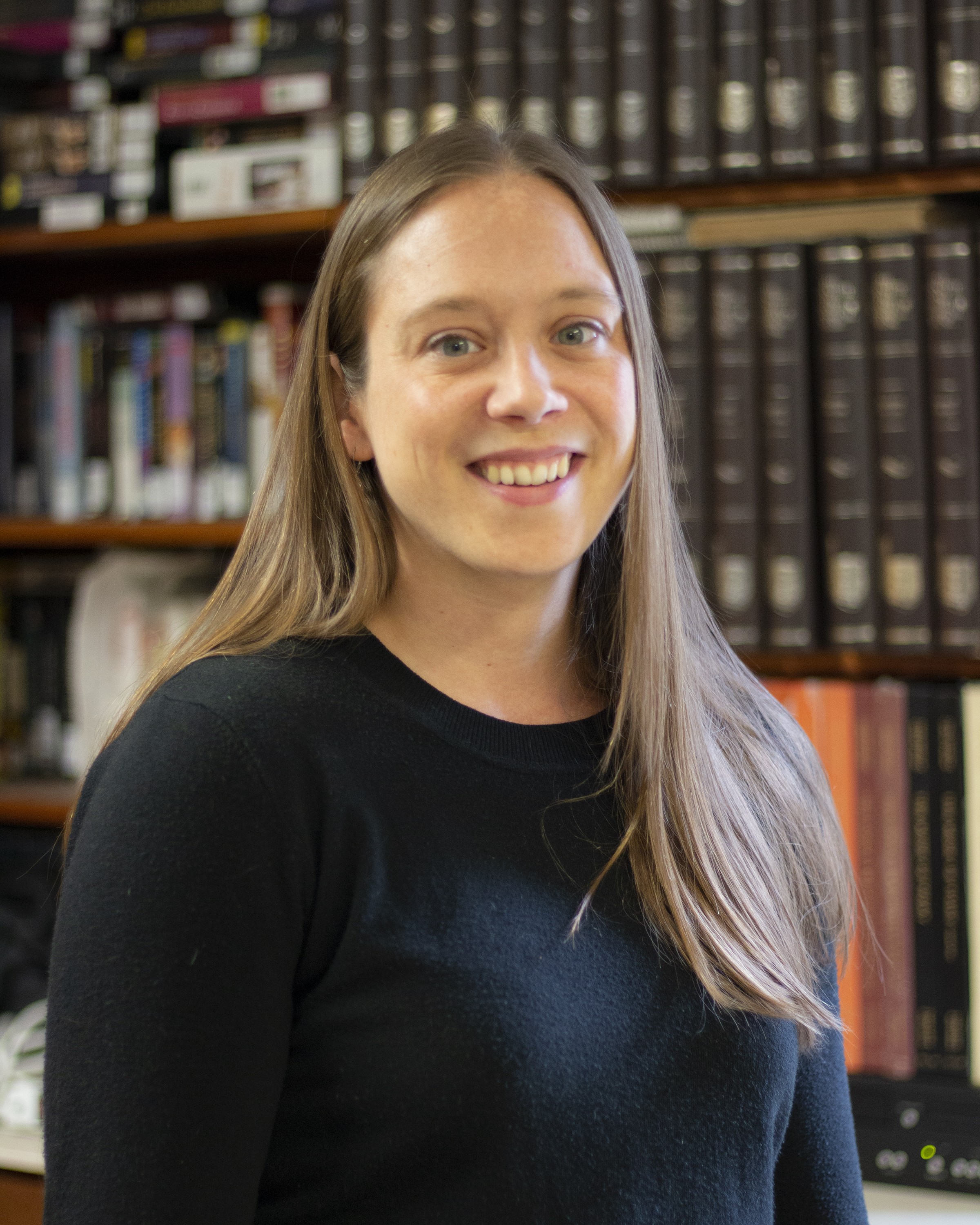Dr. Kirsten Volness brings electronic music into the classroom
Dr. Kirsten Volness steps away from traditional music by incorporating modern and electric music into her classroom. |Photo by Grace DeSanti.
Dr. Kirsten Volness, a music professor at the University of Rhode Island, is forging her own path as both a professor and a compositional artist by incorporating different types of music into the classroom and bringing it to life in her work with electronic music.
Volness is involved with several organizations throughout Rhode Island, notably a non-profit ensemble in the area and the Tenderloin Opera Company.
The Tenderloin Opera Company is a homeless advocacy group that meets every week in which musicians, the poor and homeless come together to create plays, scenes
“That’s been really special because I feel like I can actually do something concrete and tangible with this art thing that feels so useless in some ways,” said Volness.
The ensemble, meanwhile, accepts pieces written by composers all over the world, and the people involved, which includes musicians, composers and other types of artists, perform three concerts a year. Their next show is scheduled for May 17 at the Southside Cultural Center in Providence.
Volness often changes up the curriculum from what music students are used to by incorporating modern and electronic music into the mix, since most of the music department is focused on jazz and classical styles. She has been teaching at URI since 2012 and currently teaches music theory along with piano and composition classes.
“One thing I can say is that our traditional music curriculum is outdated,” Volness said. “It’s based on dead white men from Europe. So one thing I like to do in all of my theory classes is bring in electronic music and bring in David Bowie songs or like [how] my sophomore year training class has to transcribe a ‘Nine-Inch Nails’ song.”
Although Volness may teach a bit differently than some of the other professors in the department, her students have plenty of great things to say about her.
“I learned so much about writing music from [Dr. Volness], and over the years she has taught me how to be more confident as a female composer,” said Katherine Loo, a former student of Volness’s for three years. “She is always willing to help me learn more about music or the music business, and I would not be the composer I am today without her guidance.”
Aside from teaching, Volness said she also loves writing electronic music because “it’s like having an orchestra of any sound imaginable.”
Essentially, the possibilities for what the end product will sound like are virtually endless.
“The electronics add this whole other world of sound that you can’t get otherwise,” Volness added.
She’s written about 10 pieces of electronic music and said that writing is actually an “intuitive process” that takes quite a bit of time, about three months or more.
This partially has to do with the time it takes to bring in live musicians to help create the pieces. Volness emphasized the importance of this despite the fact that it may not seem like this would be necessary if the pieces are electronic.
“I really like the energy and the collaboration you have working with a live human being,” she said. “They just bring a lot to the whole process that would be missing if I kept them out of the equation.”
When it comes to how her writing process works she said she always starts with an idea, whether it’s about a concept, how the solo instrumental or the actual electronic part will sound.
“River Rising” was inspired by the tsunami that devastated Japan back in 2011.
“That image stuck with me,” said Volness. “A lot of times if I’m writing pieces I’ll stumble upon something that reminds me of whatever I want to write about.”
Volness was looking to recreate the movement and emotion of that event.
“I was imagining this violin just sort of riding on a wave of sound but also getting sucked into it sometimes,” she said
She says the violin portion of the piece was actually more improvisational than anything else, which is what made it work.
Volness is originally from Minnesota and she attended the University of Minnesota Minneapolis as an undergrad and graduated from the University of Michigan in 2008 with a doctorate in




